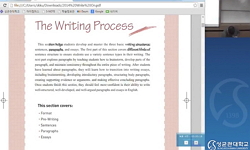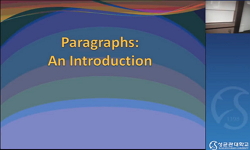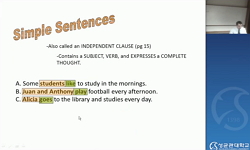Seohyun Penn. (2018). Native and Nonnative English speaking teachers’ feedback beliefs and practices. Language Information, Volume 26. 51-78. The present study investigates native and nonnative English teachers’ beliefs of teaching writing and giv...
http://chineseinput.net/에서 pinyin(병음)방식으로 중국어를 변환할 수 있습니다.
변환된 중국어를 복사하여 사용하시면 됩니다.
- 中文 을 입력하시려면 zhongwen을 입력하시고 space를누르시면됩니다.
- 北京 을 입력하시려면 beijing을 입력하시고 space를 누르시면 됩니다.
부가정보
다국어 초록 (Multilingual Abstract)
Seohyun Penn. (2018). Native and Nonnative English speaking teachers’ feedback beliefs and practices. Language Information, Volume 26. 51-78. The present study investigates native and nonnative English teachers’ beliefs of teaching writing and giving feedback and how they give feedback to Korean EFL student writing. The data were collected from 74 English teachers (38 NESTs and 36 NNESTs) in order to examine their teaching methods of writing, feedback beliefs and their self-reported feedback practice. The survey responses were analyzed using a structured coding method (Saldana, 2009) and actual feedback points were analyzed using Analytic Model for Teacher Commentary (Ferris, 1995) and Error Categories (Ferris, 2012). The findings indicated that both groups of teachers considered teaching English writing and giving feedback to EFL students an integral part of students’writing and linguistic development. NESTs and NNESTs demonstrated comparable ways of giving feedback to student writing: 70% of their feedback was corrective feedback while 30% consisted of teacher commentaries. While teachers were cautious in giving content feedback avoiding teacher appropriation, they marked every error they saw on the students’ writing. The most salient differences emerged from the amounts of feedback they gave and the time spent on student writing. Based on the results obtained in this study, various instructional insights and implications for EFL teachers were discussed in the areas of teaching and giving more effective feedback. The current study warrants the necessity of implementing teacher training for both NESTs and NNESTs in Korean EFL settings.
참고문헌 (Reference)
1 Ferris, D., "Written corrective feedback in second language acquisition and writing studies" 45 (45): 446-459, 2012
2 Ferris, D., "Treatment of error in second language student writing" University of Michigan Press 2002
3 Ferris, D., "The"Grammar Correction"debate in L2 writing : Where are we, and where do we go from here?(and what do we do in the meantime…?)" 13 (13): 49-62, 2004
4 Bitchener, J., "The value of written corrective feedback for migrant and international students" 12 (12): 409-431, 2008
5 Medgyes, P., "The schizophrenic teacher" 37 (37): 2-6, 1983
6 Schmidt, R., "The role of consciousness in second language learning" 11 (11): 129-158, 1990
7 Medgyes, P., "The non-native teacher" Macmillan 1994
8 Reves, T., "The non-native English speaking EFL/ESL teacher’s self-image : An international survey" 22 (22): 353-367, 1994
9 Johnson, J. S., "The influence of rater language background on writing performance assessment" 26 (26): 485-505, 2009
10 Ellis, R., "The effects of focused and unfocused written corrective feedback in English as a foreign language context" 36 (36): 353-371, 2008
1 Ferris, D., "Written corrective feedback in second language acquisition and writing studies" 45 (45): 446-459, 2012
2 Ferris, D., "Treatment of error in second language student writing" University of Michigan Press 2002
3 Ferris, D., "The"Grammar Correction"debate in L2 writing : Where are we, and where do we go from here?(and what do we do in the meantime…?)" 13 (13): 49-62, 2004
4 Bitchener, J., "The value of written corrective feedback for migrant and international students" 12 (12): 409-431, 2008
5 Medgyes, P., "The schizophrenic teacher" 37 (37): 2-6, 1983
6 Schmidt, R., "The role of consciousness in second language learning" 11 (11): 129-158, 1990
7 Medgyes, P., "The non-native teacher" Macmillan 1994
8 Reves, T., "The non-native English speaking EFL/ESL teacher’s self-image : An international survey" 22 (22): 353-367, 1994
9 Johnson, J. S., "The influence of rater language background on writing performance assessment" 26 (26): 485-505, 2009
10 Ellis, R., "The effects of focused and unfocused written corrective feedback in English as a foreign language context" 36 (36): 353-371, 2008
11 Bitchener, J., "The effect of different types of corrective feedback on ESL student writing" 14 (14): 101-205, 2005
12 Saldana, J., "The Coding Manual for Qualitative Researchers" Sage Publications Ltd 2009
13 Ferris, D., "Teaching L2 composition: Purpose, process, and practice" Routledge 2014
14 Kim, Y., "Teaching Korean university writing class" 7 (7): 1-15, 2005
15 Hyland, K., "Teachers’ perceptions of error : The effects of first language and experience" 34 (34): 509-519, 2006
16 Borg, S., "Teacher cognition in grammar teaching : A literature review" 12 (12): 96-108, 2003
17 Ferris, D., "Student reactions to teacher response in multiple-draft composition classrooms" 29 (29): 33-53, 1995
18 Fathman, A., "Second language writing: Research insights for the classroom" Cambridge University Press 178-190, 1990
19 Tagong, A., "Revising strategies of Thai students: Text-level changes in essays written in Thai and in English" 52 : 2849A-, 1992
20 Ferris, D., "Response to student writing: Implications for second language students" Routledge 2003
21 Sommers, N., "Responding to student writing" 33 (33): 148-156, 1982
22 Reid, J., "Responding to ESL students’ texts : The myths of appropriation" 28 (28): 273-292, 1994
23 Hamp-Lyons, L., "Research perspectives on English for academic purposes" Cambridge University Press 101-116, 2001
24 Goldstein, L., "Questions and answers about teacher written commentary and student revision : Teachers and students working together" 13 (13): 63-80, 2004
25 Connor, U., "Peer response group in ESL writing classes: How much impact on revision?" 3 (3): 257-276, 1994
26 Brannon, L., "On students’ rights to their own texts : A model of teacher response" 33 (33): 157-167, 1982
27 Inbar-Lourie, O., "Non-native language teachers: Perceptions, challenges, and contributions to the profession" Springer 265-281, 2005
28 Braine, G., "Non-native language teachers: Perceptions, challenges and contributions to the profession" Springer 13-23, 2005
29 Canagarajah, A. S., "Non-native educators in English language teaching" Lawrence Erlbaum 145-158, 1999
30 Medgyes, P., "Native or non-native: who's worth more?" 46 (46): 340-349, 1992
31 Maharjan, L. B., "Learners' Errors and their Evaluation" 14 (14): 71-81, 2009
32 Kramsch, C., "Language and culture" Oxford University Press 1998
33 Zhang, Y., "Judgments of oral proficiency by non-native and native English speaking teacher raters: Competing or complementary constructs?" 28 (28): 31-50, 2011
34 Swain, M., "Input and Second Language Acquisition" Newbury House 235-252, 1985
35 Busse, V., "How do students of German perceive feedback practices at university? A motivational exploration" 22 (22): 406-424, 2013
36 백철, "From Perception to Practice: Native and Non-Native English Teachers’ Use of Error Correction in Written Feedback" 한국영어교육학회 71 (71): 25-45, 2016
37 Hyland, K., "Feedback in second language writing : Contexts and issues" Cambridge university press 2006
38 Ferris, D., "Feedback in second language writing" Cambridge University Press 123-139, 2006
39 Bal-Gezegin, B., "Feedback in L2 writing : Voices from native and non-native English speaking teachers" 199 (199): 763-769, 2015
40 Sheorey, R., "Error perceptions of native-speaking and non-native speaking teacher of ESL" 40 (40): 306-312, 1986
41 Ferris, D., "Error feedback in L2 writing classes: How explicit does it need to be?" 10 (10): 161-184, 2001
42 Lee, I., "Error correction in L2 secondary writing classrooms : The case of Hong Kong" 13 (13): 285-312, 2004
43 Radecki, P., "ESL student reaction to written comments on their written work" 16 (16): 355-365, 1988
44 Song, B., "Do English and ESL faculty differ in evaluating the essays of native English-speaking and ESL students?" 5 (5): 163-182, 1996
45 Schulz, R. A., "Cultural differences in student and teacher perceptions concerning the role of grammar instruction and corrective feedback" 85 (85): 244-258, 2001
46 Connor‐Linton, J., "Crosscultural comparison of writing standards : American ESL and Japanese EFL" 14 (14): 99-115, 1995
47 O’Hagan, S., "Assessment criteria for non-native speaker and native speaker essays:Do uniform standards work?" 2000
48 Kim, Y., "An investigation into native and non-native teachers' judgments of oral English performance : A mixed methods approach" 26 (26): 187-217, 2009
49 Polio, C., ""If only I had more time" : ESL learners’ changes in linguistic accuracy on essay revisions" 7 (7): 43-68, 1998
50 Park, G., ""I am never afraid of being recognized as an NNES" : One teacher's journey in claiming and embracing her nonnative‐speaker identity" 46 (46): 127-151, 2012
동일학술지(권/호) 다른 논문
-
- 고려대학교 언어정보연구소
- Chen Hui
- 2018
- KCI등재후보
-
- 고려대학교 언어정보연구소
- 김영옥
- 2018
- KCI등재후보
-
- 고려대학교 언어정보연구소
- DUVERNAYNICHOLASYOHAN
- 2018
- KCI등재후보
-
Lexico-Syntactic Structures of Spatial Expressions
- 고려대학교 언어정보연구소
- 정유진
- 2018
- KCI등재후보
분석정보
인용정보 인용지수 설명보기
학술지 이력
| 연월일 | 이력구분 | 이력상세 | 등재구분 |
|---|---|---|---|
| 2020 | 평가예정 | 신규평가 신청대상 (신규평가) | |
| 2019-12-01 | 평가 | 등재후보 탈락 (계속평가) | |
| 2018-01-01 | 평가 | 등재후보학술지 유지 (계속평가) |  |
| 2017-12-01 | 평가 | 등재후보로 하락 (계속평가) |  |
| 2014-01-03 | 학술지명변경 | 외국어명 : 미등록 -> Language Information |  |
| 2013-01-01 | 평가 | 등재학술지 선정 (등재후보2차) |  |
| 2012-01-01 | 평가 | 등재후보 1차 PASS (등재후보1차) |  |
| 2010-01-01 | 평가 | 등재후보학술지 선정 (신규평가) |  |
학술지 인용정보
| 기준연도 | WOS-KCI 통합IF(2년) | KCIF(2년) | KCIF(3년) |
|---|---|---|---|
| 2016 | 0.28 | 0.28 | 0.22 |
| KCIF(4년) | KCIF(5년) | 중심성지수(3년) | 즉시성지수 |
| 0.24 | 0.26 | 0.616 | 0.13 |






 KCI
KCI






